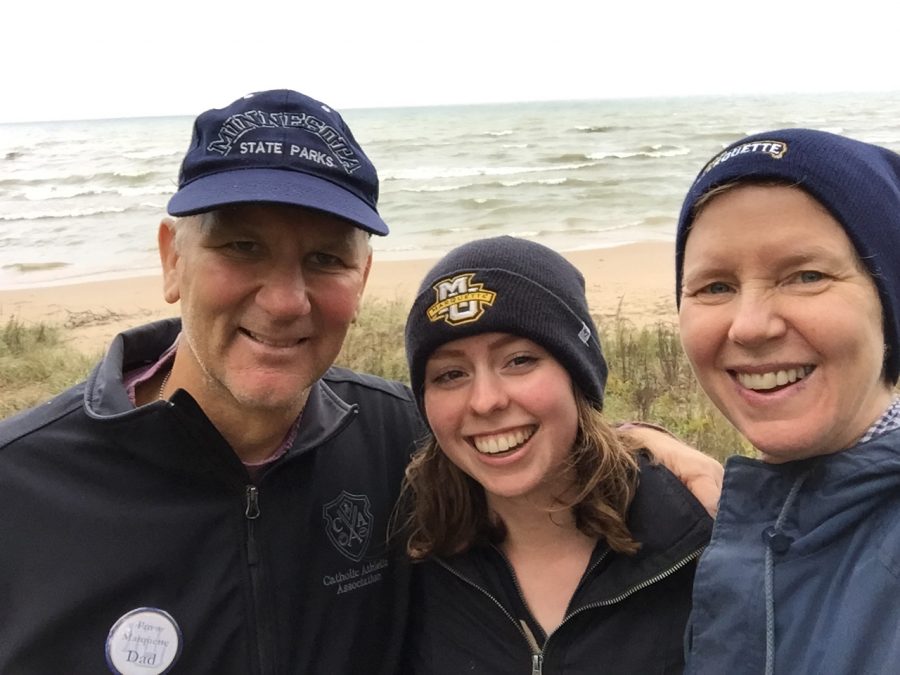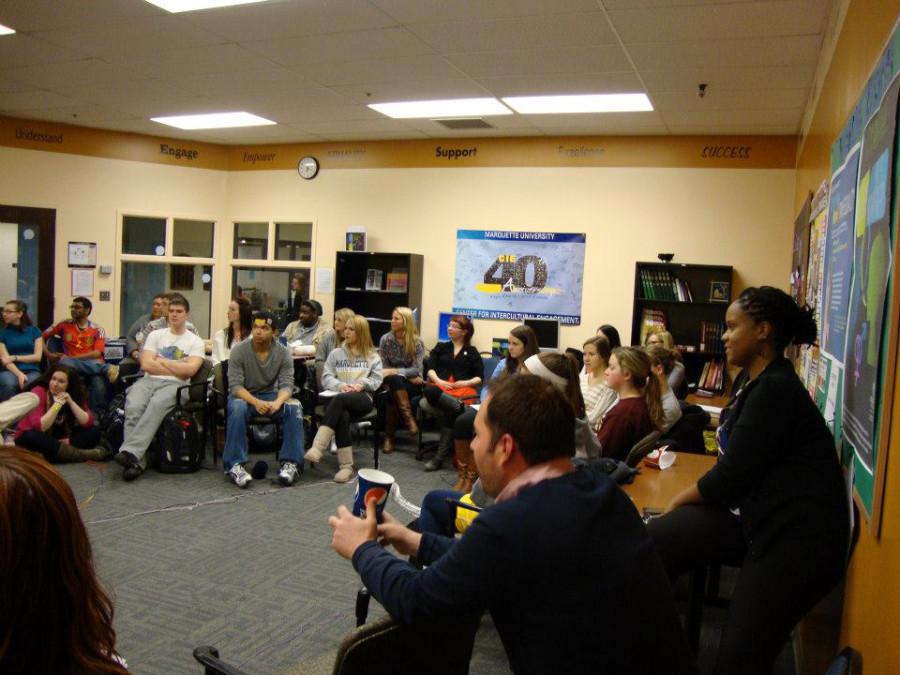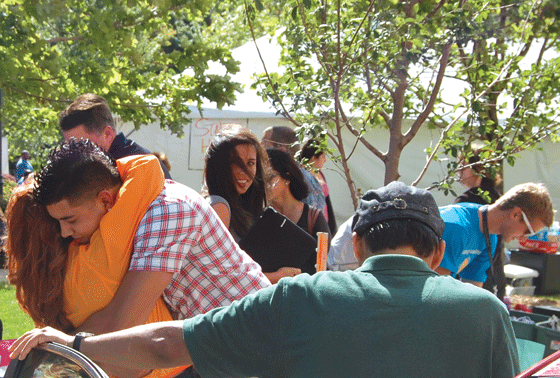In 1989, only 4 percent of American men were stay-at-home fathers, according to Pew Research Center surveys. Eight years later, my dad quit his job as a gym teacher to join those ranks.
Over time, I’ve come to realize how starkly reversed my parents’ gender roles were (and still are). My mom has spent her career steadily climbing the corporate ladder and, for most of my life, was the sole breadwinner in the household. She was the one constantly in business suits, working well past 5 p.m. and occasionally traveling.
My dad was the one who stayed home every day, doing the cooking, cleaning, laundry and packing lunches for all of us.
This, of course, never seemed at all unusual to me growing up, but the impact was significant. I never formed an idea that one gender was supposed to work while the other was supposed to stay home with the kids.
I fully believe there are a million effective and wonderful methods to raise a family and that my childhood was in no way superior to anyone else’s. Clearly, I can’t speak to others’ experiences because my childhood is the only thing I’ve known. However, I believe the way I was raised differed pretty significantly from the norm and had a unique effect on my development.
Almost all of my friends’ moms were stay-at-home, but my dad balanced it out enough that I assumed you got to choose which role you wanted, no matter your gender. My dad taught me that men are fully capable of doing housework and raising kids in a nurturing and supportive environment. At the same time, my mom taught me that women can have successful careers and excel in their field.
They were clear that either role was an option, and neither was a better or worse choice. They supported each other unconditionally.
Besides just having their traditional roles reversed, my parents instilled a sense in me that I was (and am) equal to everyone else. Sure, I played with dolls and had tea parties and was pretty much in a constant state of pretending to be a princess, but having my dad home allowed me to try more traditionally masculine activities as well.
We always played football and arm-wrestled. I asked for cowboy and pirate toys for Christmas and worked out with my dad. I grew up never doubting that I was just as physically strong — or stronger — than any boy out there.
That equality went beyond physical strength, too. I remember a time I was sweeping the kitchen and my dad asked if I needed help. Repeating something my impressionable young brain had picked up, I answered, “No thanks, Dad — this is women’s work.”
He stopped, took the broom from me, and looked at me very seriously straight in the eyes. “Who taught you that?” he asked.
Neither he nor my mom tolerated this type of language, and they cut it off before it had a chance to take root. My mom always introduced me to books with strong female characters and once had a discussion with me about how Barbies’ bodies are unrealistic.
At the time, I remember thinking what my parents told me was silly, because in our cozy little house, everyday sexism and bigotry didn’t seem like a problem at all. But the real world is another story. Many people out there frankly just don’t understand how their words affect others or that their opinions are not fact.
But the unusual, open-minded environment my parents raised me in gave me a solid foundation. I wasn’t impervious to the underbelly of the real world; no one is. Yet when things didn’t measure up to what I believed was right, I learned to question them. This instinct hasn’t failed me yet, and for that I am grateful.





